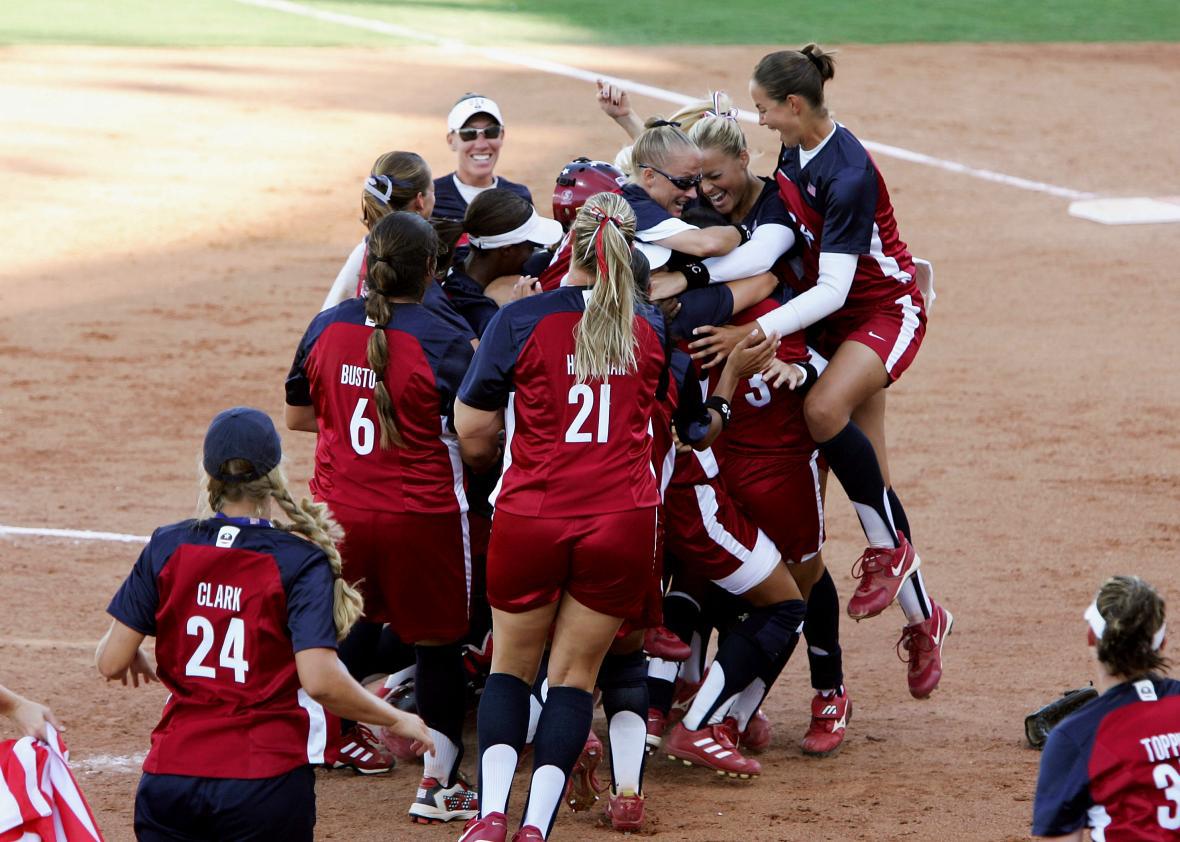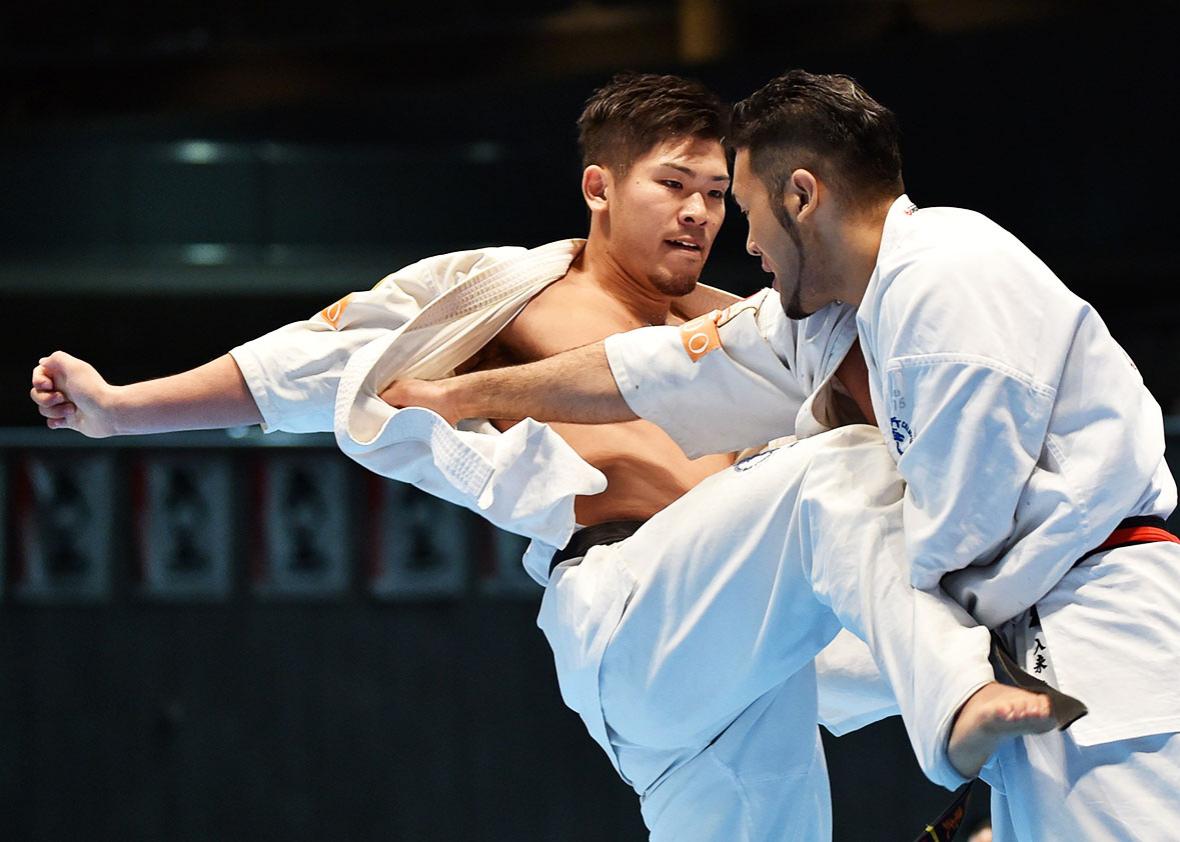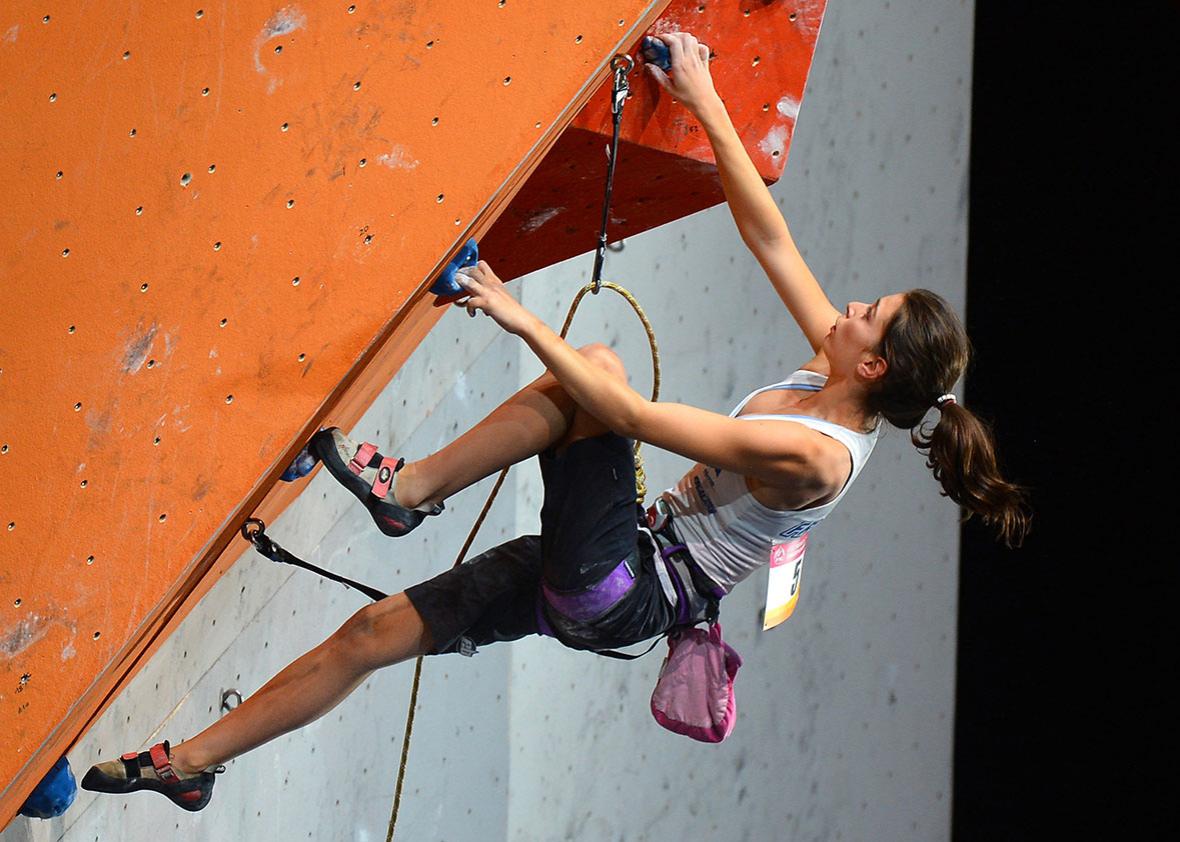The opening ceremony for this year’s Olympic Games is just days away, but the International Olympic Committee already has its eye on 2020. On Wednesday, the IOC voted to add five sports in time for the Tokyo Games: baseball/softball (a combined entry), karate, skateboarding, sport climbing, and surfing. In the case of baseball and softball, those sports’ inclusion will represent a triumphant return after being passed over in 2012 and 2016. The other four sports are new additions, having navigated a byzantine process to earn Olympic recognition and ultimately winning out over such wannabes as air sports, DanceSport, flying disc, korfball, netball, orienteering, roller sports, sumo, tug of war, and wushu. According to a report issued by the IOC, this five-sport package “encompasses both traditional and emerging, youth-focused events, all of which are popular both in Japan and internationally.”
Here’s everything you need to know about what’s new in 2020.
Baseball: Men’s baseball debuted at the 1904 St. Louis Games as a “demonstration” sport, an inauspicious, noncompetitive beginning that previewed the sport’s backseat role throughout Olympic history. Baseball didn’t achieve official competitive event status until the 1992 Barcelona Games, then lost it again after the 2008 Beijing Games.
A 1991 article published by the Society for American Baseball Research attributes the sport’s low profile to longtime IOC head Avery Brundage. A staunch traditionalist, Brundage envisioned the games as a venue for individual athletes and sought to limit the introduction of team sports. Baseball has also been hobbled by its lack of widespread popularity outside the Americas. Until the late 1970s, it also lacked a vocal international body to advocate for its inclusion. The sport’s resurgence in the 1990s and 2000s was short-lived; an IOC vote in 2005 nixed it, along with softball, making them the first sports dropped from the Olympic roster since polo was ousted in 1936. The Washington Post quoted then–IOC President Jacques Rogge as saying the vote against baseball and softball “does not disqualify them forever as Olympic sports.” He was right. Baseball’s 2020 bid was boosted by its popularity in Japan. When Tokyo hosted the 1964 Games, a team of American college stars defeated the homestanding Japanese 6-2 in a single exhibition game.

Jonathan Ferrey/Getty Images
Softball: The history of softball is largely one of exclusion. International efforts led by American and Japanese softball associations to include the sport on the Olympic program date from the 1940s. A decade later, New Zealand softball organizations partnered with their U.S. counterparts in a fruitless attempt to secure softball a slot at the 1956 Games in Australia. What followed was a black comedy of bureaucratic red tape, IOC insider baseball, misogynistic discrimination, and miserly funding that kept softball off the Olympic docket for nearly four decades.
In 1991, the U.S. Amateur Softball Association successfully lobbied for the game’s inclusion in the 1996 Atlanta Olympics, at which the U.S. national team defeated China to earn a gold medal, its first of three. The vote to reinstate softball for Tokyo 2020 should jump-start a sport that’s become entrenched in the Americas, Asia, and Australia and has gained a foothold in Europe and Africa. In a somewhat anodyne nod to softball’s tortured Olympic history, a June IOC press release stated that the sport’s potential inclusion “promotes gender equality.”
Skateboarding: The sport of ollies, grinds, and McTwists made an experimental appearance at the 2014 Summer Youth Olympic Games in Nanjing, China. But given its rebellious roots and counterculture credentials, it’s not surprising that skateboarding’s possible elevation to Olympian status has not garnered universal support. An online petition exhorting the IOC to “not recognize skateboarding as an Olympic sport” boasts nearly 7,000 signatures. “Skateboarding is not a ‘sport’ and we do not want skateboarding exploited and transformed to fit into the Olympic program,” the petition reads in part. Though International Skateboarding Federation President Gary Ream acknowledged skateboarding “is not all about competition; it’s also a lifestyle,” he told the Los Angeles Times in October that stamping the sport with the Olympic rings would “not … satisfy everybody” but would nevertheless “come close.”
The IOC’s proposal on new sports explains that skateboarding is “a youthful and urban-oriented sport” and that the “top skateboarders in the world also have a strong digital presence and influence with millions of followers on social media.” Radical!
There will reportedly be four Olympic skateboarding events in 2020: men’s and women’s street, and men’s and women’s park. Here’s some footage of how skateboarding played out in Nanjing in 2014.
Surfing: A true Olympic novitiate, surfing’s introduction in Tokyo will be a watershed moment for a sport that’s been smacked down repeatedly by the IOC. Fernando Aguerre, president of the International Surfing Association and a longtime advocate for the sport’s inclusion, failed to win support for his sport at the Sydney, Athens, Beijing, London, and Rio Games. The IOC’s endorsement this time around has chummed the waters with controversy. Aguerre has endorsed the idea of a using artificial wave pools to sidestep unreliable ocean tides that could complicate scheduling. Though the IOC has pledged to avoid wave-pool technology at all costs in Tokyo, the prospect of surfers “flopping around in 2-to-3-foot wedges” that resemble “a chlorine bathtub” has nevertheless drawn flak from experienced surfers who fear the Olympics will screw the whole thing up.

Kazuhiro Nogi/Getty Images
Karate: Loosely translated as “the way of the empty hand,” karate is an indigenous martial art incubated on the now-Japanese island of Okinawa. The prospect of the sport’s Olympic debut at the 2020 Tokyo Games spawned a 50,000-like-strong Facebook page whimsically titled “The K is on the Way.” The Japanese government also lobbied heavily for karate’s inclusion.
But now that the IOC has approved karate, the fight is just getting started. A Wall Street Journal article published last September explored ongoing disagreements over which form of the martial art should be allowed in the Olympic ring. While the IOC–recognized World Karate Federation endorses only noncontact karate, there’s also koshiki, which allows “safe contact,” while Shinkyokushin—which boasts some 20 million adherents—employs “a full-contact style with sharp kicks and punches that uses minimal body protection.”
The IOC hasn’t yet weighed in on the controversy, but here’s a promotional video from the WKF to get you pumped up.
Sport climbing: After failing to scale its way into the Olympics in 2013, sport climbing—rock climbing that uses fixed anchors and rappels—won over the IOC this time around. Marco Scolaris, president of the International Federation of Sport Climbing, and Yagihara Kunio, president of the Japanese Mountaineering Association, have hailed the IOC’s decision. Indeed, the move to adopt the sport appears to be relatively uncontroversial within the cliff-summiting community. The IFSC’s proposal for the Olympics outlines four days of men’s and women’s competition featuring lead climbing, bouldering, and speed climbing.
What’s lead climbing? For your viewing pleasure, here’s some footage from the 2015 IFSC Climbing World Cup held in Chamonix, France:
What’s bouldering? Watch this year’s competition in Vail, Colorado:
How about speed climbing? Thrill to Ukrainian Danyl Boldyrev’s 2014 world-record-setting victory in Gijón, Spain:
